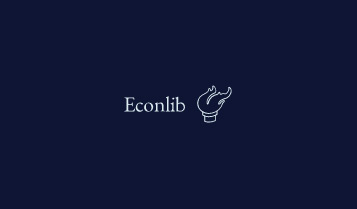Article
Article
In the neoclassical economic model, agents are assumed to act in pursuit of maximum utility—to know their preferences and some of the constraints they face—and to effectively satisfy their economic needs by means of market exchanges. In contrast, behavioral economists claim that individual judgments tend to be cognitively conditioned by biases such as overconfidence, lack .. MORE
Article
Professor Israel M. Kirzner, more than any other economist of the Austrian School (and among economists in general) since the second half of the 20th century, has revived our understanding of the systematic role of the entrepreneur as the driving force of the market as a process of discovery, error correction, and learning (Kirzner 1973). .. MORE
Book Review
A Book Review of Manufacturing Militarism: U.S. Government Propaganda in the War on Terror, by Christopher J. Coyne and Abigail R. Hall.1 It’s been over 20 years since the 9/11 attacks. Ever since those horrible attacks, the United States government has been waging a “war on terror” both at home and abroad. The war on .. MORE
Business Economics
Institutional Economics
Property Rights
Article
Book Review
Economic History
Trade Barriers
Media Watch
econtalk-podcast
Russian Literature Professor Kevin McKenna of the University of Vermont talks with EconTalk host Russ Roberts about the life and times of Aleksandr Solzhenitsyn. This is the opening episode of the EconTalk Book Club for Solzhenitsyn’s masterpiece In the First Circle: The First Uncensored Edition. A subsequent episode to air in the next few weeks .. MORE
econtalk-podcast
Author and journalist Fredrik deBoer discusses his book The Cult of Smart with EconTalk host Russ Roberts. DeBoer argues that there is little that can be done to change the distribution of success in K-12 education. He argues that educational reforms like charter schools and No Child Left Behind are doomed to failure. At the .. MORE
Economic Growth
Last summer I lamented the recent dearth of good news: In the last part of the 20th century, I greatly enjoyed reading news outlets such as The Economist, the Financial Times, the Wall Street Journal, and the Far Eastern Economic Review. These news sources focused on public policy issues, especially economic and political issues. Those .. MORE
Free Markets
Inspired by Graham McAleer’s review of the new James Bond, No Time to Die, I streamed the film from Amazon Prime Video. Ever since with my young sons decades ago I watched James Bond films, I have always liked them for the action and the guns, although I now find Jason Bourne more congenial and .. MORE

Explore the lasting legacies and
continued relevance of our classic titles.
In the recent revival of public and scholarly interest in the values of limited government and the market order, no one has been more centrally significant than Friedrich A. Hayek. His works have figured as a constant point of reference in the discussions both of the libertarian and conservative theories of the market economy; they .. MORE
THE fullest account we possess of the life of Adam Smith is still the memoir which Dugald Stewart read to the Royal Society of Edinburgh on two evenings of the winter of 1793, and which he subsequently published as a separate work, with many additional illustrative notes, in 1810. Later biographers have made few, if .. MORE
Most grownups don’t believe in magic anymore. Sometimes, though, it can be helpful to imagine it. A powerful ring turns the wearer invisible in J. R. R. Tolkien’s The Lord of the Rings. That power means the wearer can act with relative impunity. (For that device, Tolkien had Plato to thank.) We can also imagine .. MORE
… the problems of boys and men are structural in nature… the educational system is structured in ways that put them at a disadvantage. Men are struggling in the labor market because of an economic shift away from traditionally male jobs. And fathers are dislocated because the cultural role of family provider has been hollowed .. MORE
VIDEO
Nobel laureate Ronald H. Coase (1910-2013) was recorded in 2001 in an extended video now available to the public. Coase’s articles, “The Problem of Social Cost” and “The Nature of the Firm” are among the most important and most often cited works in the whole of economic literature. Coase recounts how he tried to encourage .. MORE
VIDEO
Recognized as one of the most influential voices in the areas of market structure, the theory of the firm, law and economics, resource unemployment, and monetary theory and policy, in this 2001 interview, Armen Alchian (1914-2013) outlines the “UCLA tradition” of economics which he founded and explores the many unanticipated consequences of self-seeking individual behavior. .. MORE
ECONLIB SERIES
Conversations with some of the most original thinkers of our time

The Reading Lists by Topic pages contain some suggested readings organized by topic, including materials available on Econlib. Brief reviews or descriptions are included for many items.

Supplementary materials for popular college textbooks used in courses in the Principles of Economics, Microeconomics, Price Theory, and Macroeconomics are suggested by topic.

These free resources are appropriate for teachers of high school and AP economics, social studies, and history classes. They are also appropriate for interested students, home schoolers, and newcomers to the topic of economics.
It was, according to accounts filtering out of the White House, an extraordinary scene. Hank Paulson, the U.S. treasury secretary and a man with a personal fortune estimated at $700m (£380m), had got down on one knee before the most powerful woman in Congress, Nancy Pelosi, and begged her to save his plan to rescue .. MORE
Gross domestic product, the official measure of total output of goods and services in the U.S. economy, represents the capstone and grand summary of the world’s best system of economic statistics. The federal government organizes millions of pieces of monthly, quarterly, and annual data from government agencies, companies, and private individuals into hundreds of statistics, .. MORE
The gold standard was a commitment by participating countries to fix the prices of their domestic currencies in terms of a specified amount of gold. National money and other forms of money (bank deposits and notes) were freely converted into gold at the fixed price. England adopted a de facto gold standard in 1717 after .. MORE
-James Buchanan
-Ludwig von Mises Full Quote >>